British Question Remains Overshadowed by the Refugee Crisis
Adelina Marini, February 19, 2016
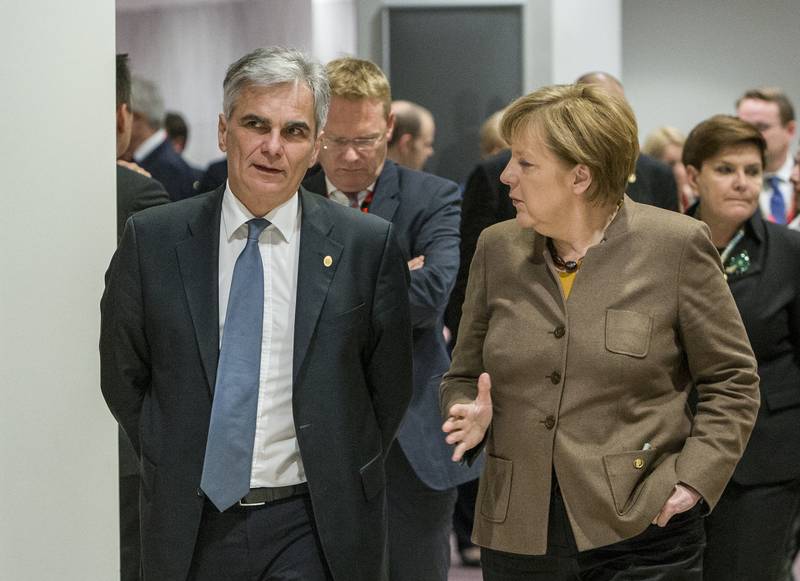 You can judge the Council by the Arrivals. This is what the period is called before every meeting of the ministers or the leaders of the EU when they stop in front of journalists at the entrance of the Consilium to clarify what they are going to fight for during the meeting. To most journalists, coming from countries most affected by the refugee crisis, the British question was practically nonexistent, despite the statement of European Council President Donald Tusk (Poland, EPP) upon his arrival for the meeting that this is a summit of make or break. It is so, although to the majority of member states on the continent the refugee subject is the one of make or break, despite everybody stating that they do not want a Union without Great Britain. The refugees subject was supposed to only be discussed over dinner. This is usually a period of around two hours, left for easier and less important issues. The British question often fell into this part of the summits’ programme last year.
You can judge the Council by the Arrivals. This is what the period is called before every meeting of the ministers or the leaders of the EU when they stop in front of journalists at the entrance of the Consilium to clarify what they are going to fight for during the meeting. To most journalists, coming from countries most affected by the refugee crisis, the British question was practically nonexistent, despite the statement of European Council President Donald Tusk (Poland, EPP) upon his arrival for the meeting that this is a summit of make or break. It is so, although to the majority of member states on the continent the refugee subject is the one of make or break, despite everybody stating that they do not want a Union without Great Britain. The refugees subject was supposed to only be discussed over dinner. This is usually a period of around two hours, left for easier and less important issues. The British question often fell into this part of the summits’ programme last year.
Last night, it was supposed to be the leading subject but, again, it was not. The dinner lasted for six hours, ending with conclusions which just call for implementation of measures already agreed on during the previous prolonged summits. As EC President Jean-Claude Juncker (Luxembourg, EPP) stated at 2:30 am this morning, before the start of the summit some were doubtful of the need for having it at all. According to Donald Tusk, the discussion last night was held in a critical moment for the migrant crisis. The discussion “only reinforced our commitment to building a European consensus on migration”. And this seems to be the sole achievement, if it is an achievement at all, judging by the words of the former Polish PM that followed:
“To do that, we must first avoid a battle among plans A, B and C. It makes no sense at all, as it creates divisions within the European Union. Instead, we must look for a synthesis of different approaches”, said Mr Tusk in a weary and exhausted tone of voice, obviously answering the negotiation of a plan B by countries of the Visegrad group + Bulgaria from the beginning of the week. Tusk underlined that the European solution does not end with what is being negotiated in Brussels. Donald Tusk left the subject of the British negotiations for the end, stating there was certain progress, but there is still a lot to do. After the summit there were bilateral discussions with French President François Hollande, Belgian PM Charles Michel and the Czech PM Bohuslav Sobotka. The former two have strong objections to the discussions on whether the treaties need to include a commitment to “going towards an ever closer union”, against compromises on the banking union and the relations between the euro area and the rest. The Czech Republic has objections on the fourth basket.
As opposed to Juncker and Tusk, German Chancellor Angela Merkel, one of the few that withstood having the regular press conferences in the early hours of the morning, began exactly with the discussions on the British question. She outlined the main controversy subjects. The main topic was the abuse of social security systems, the indexation of child benefits, and the social benefits exemptions. Ms Merkel stated that she supported the indexation of child benefits. Another subject was namely the banking union and the finance union. The problem, as euinside reported, is that Great Britain wants exemptions, which could create problems for the functioning of the banking union. More specifically, it wants the supervision and resolution to be in its hands. According to Angela Merkel, work is being done on this subject, “because we want to make sure of a level playing field”.
The third subject was the phrase “towards an ever closer union”. Aiming at keeping Great Britain in the Union, this is something there is a tendency for compromise on. “The benefits of keeping Britain within the Union are so much higher than the opposite”, she said and went straight away to the subject of the refugees, where she insisted that priority number one has the plan for action with Turkey. In the beginning of March, there will be an emergency summit dedicated on the Turkish plan, after yesterday the planned summit failed, due to the terrorist attack in Ankara earlier. Angela Merkel was optimistic in stating that in fact what had already been achieved in not so little. Alas, relocation data and the rest of the things agreed on back in the autumn of last year show otherwise. The novelty is that the leaders supported the idea of Germany and several other states that NATO be involved in working on the patrolling the Aegean sea, aiming to lessen refugee flows and incidents.
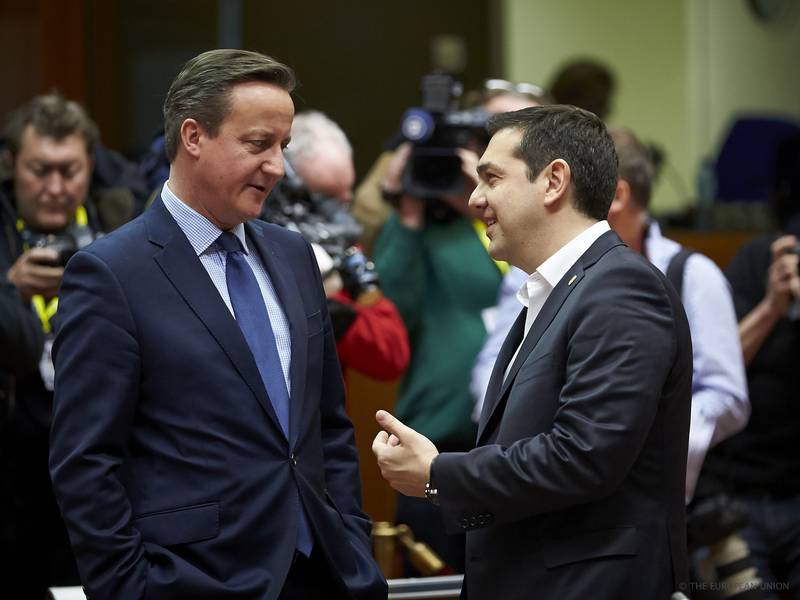
According to insiders, there was discontentment again during the meeting over distracting the leaders’ attention by the British demands, instead of concentrating on solving the refugee problem. The Brussels brief of The Financial Times claims that Greek PM Alexis Tsipras was among the most annoyed. According to the newspaper, he got mad at discussing the nuances of the “towards a closer union” phrase, when there is risk of disintegration of the EU. Before the start of the summit yesterday, the Greek PM stated that Europe at the moment is at a “very, very critical crossroads” and needs to deal with three crises simultaneously. He stressed that Europe cannot be rules for some and a la carte to others, envisaging exactly David Cameron’s demands.
Also according to The Financial Times, a controversial moment was the British PM’s demand that the deal be “for a generation”, which would mean that the British question will continue to appear on the Union’s agenda. There were rumours last night that some member states insisted the British question be closed once and for all. During the entire evening and the following night pessimism kept winning over optimism on reaching an agreement with Great Britain. The morning too started not too encouragingly. According to Angela Merkel, the important thing is that there is a will.
Translated by Stanimir Stoev
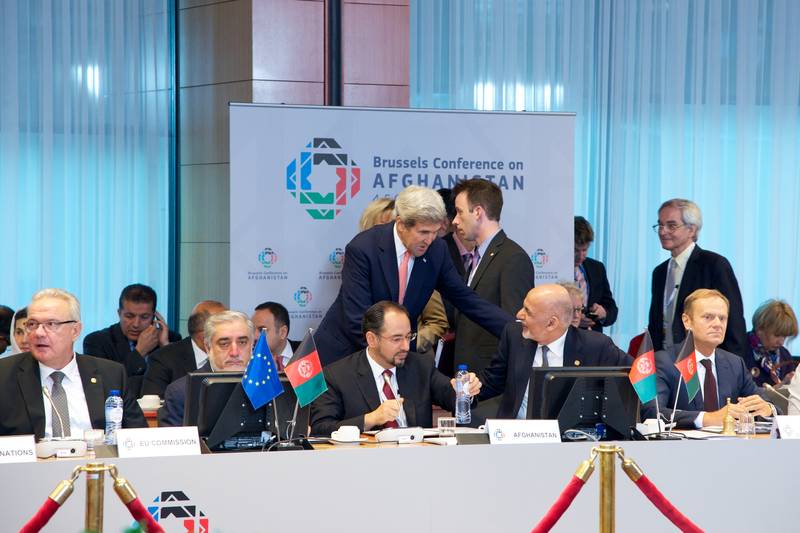 | © Council of the EU
| © Council of the EU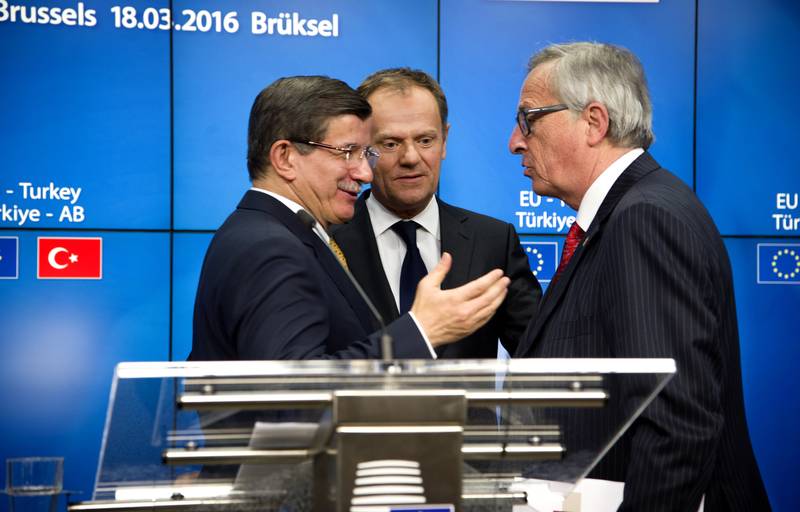 Davutoglu, Tusk, Juncker | © Council of the EU
Davutoglu, Tusk, Juncker | © Council of the EU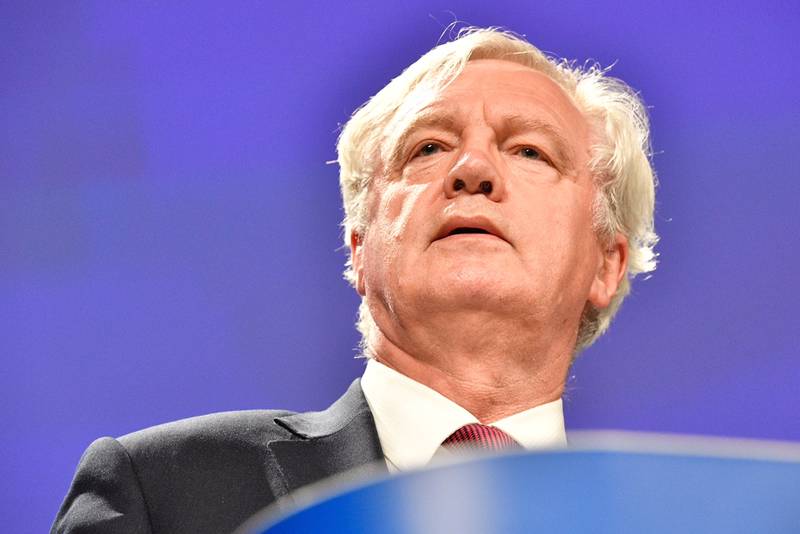 David Davis | © European Commission
David Davis | © European Commission Angela Merkel | © Council of the EU
Angela Merkel | © Council of the EU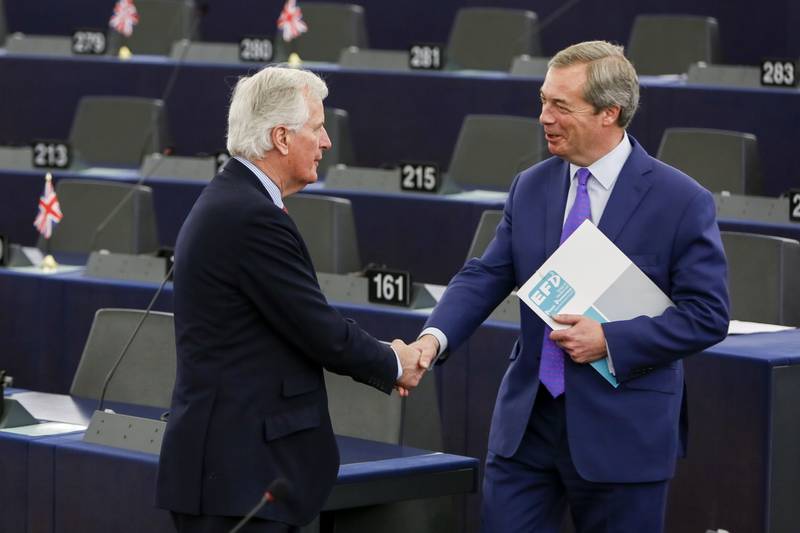 Michel Barnier, Nigel Farage | © European Parliament
Michel Barnier, Nigel Farage | © European Parliament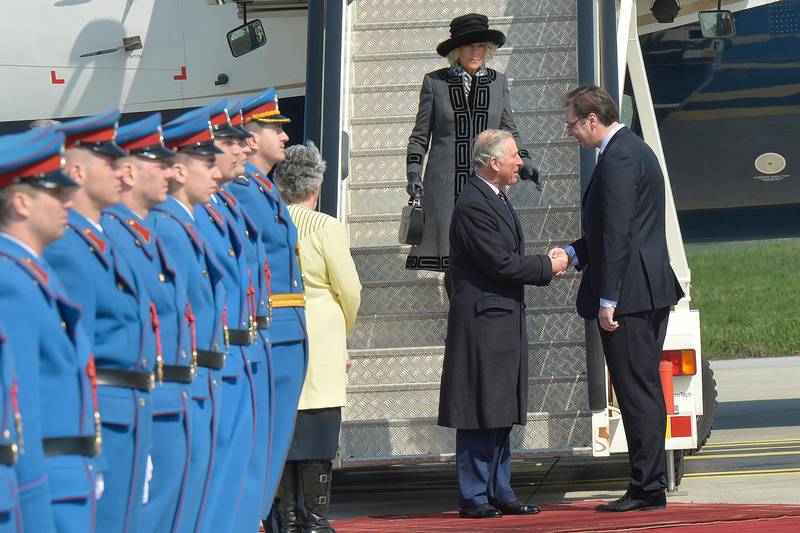 | © Vlada RS
| © Vlada RS